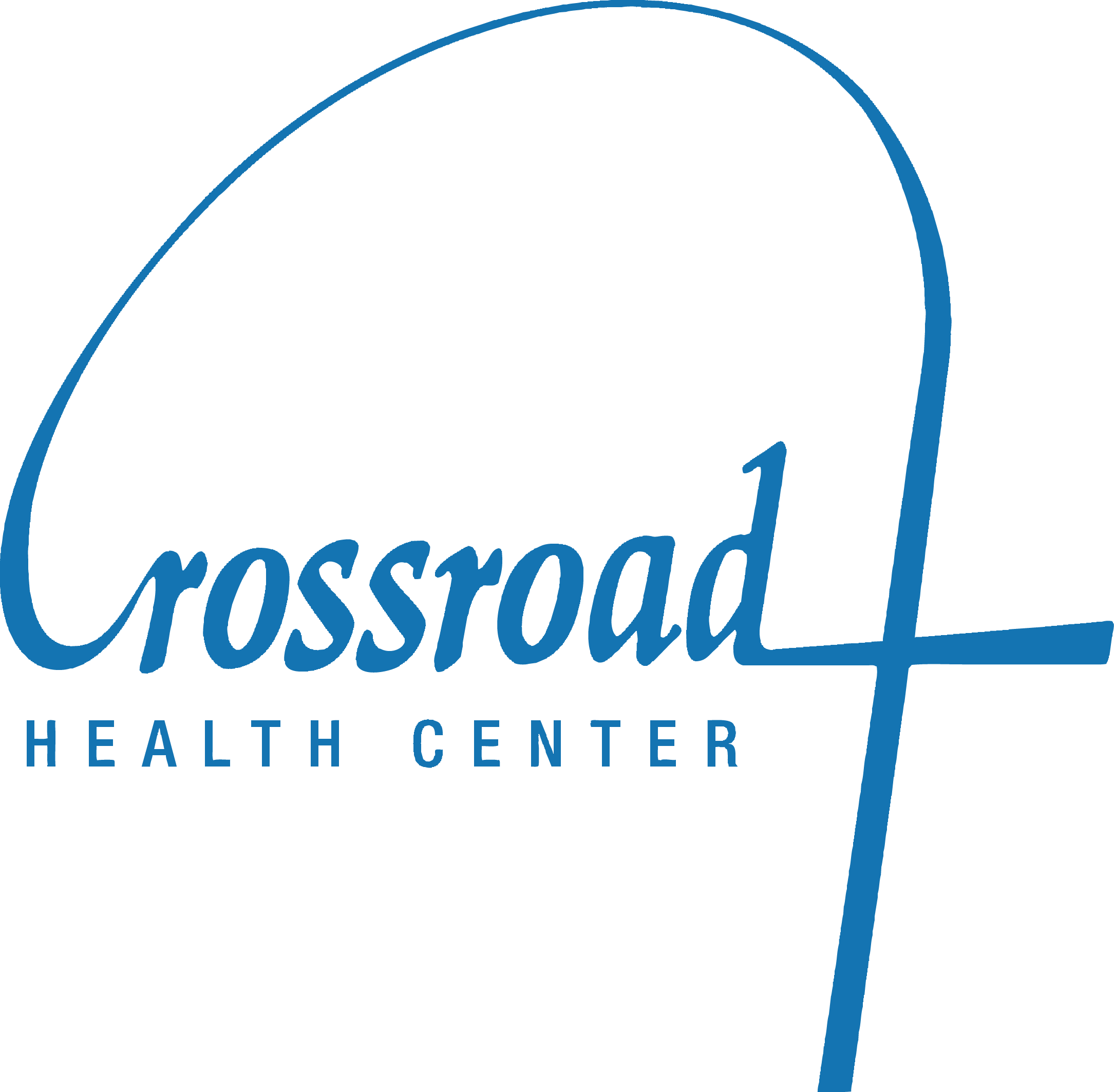Resources
Pregnancy Care
Supportive Pregnancy Care
Pregnancy is an exciting time. But it can also be challenging, especially if you’re a first-time mom. When you join Crossroad’s Supportive Pregnancy Care program at our Western Hills site, you can build a friendly and understanding community with other expectant mothers. The program brings together a small group of pregnant women with similar due dates for prenatal care with a qualified Crossroad facilitator. During the group sessions, you will prepare for your birth experience and receive practical, hands-on information about how to care for yourself and your baby.
Get Rewarded When You Join Our Supportive Pregnancy Care Group
When you join the Supportive Pregnancy Care program, you can build a friendly and understanding community with other expectant
mothers. You can learn how to best care for yourself and your baby. And you can enjoy these great benefits!
- 1st group visit – receive a $25 gift card
- Every 3 visits – receive a $10 gift card (total of 3)
- Complete all prenatal visits – receive a Pack 'N' Play
- Postpartum visit – receive a gift basket with self-care and baby items
Why Join Our Supportive Pregnancy Care Group?
Whether this is your first baby or you’re an experienced mom, group prenatal care can help you feel confident and supported throughout your pregnancy. Our Supportive Pregnancy Care program:
- Makes a premature birth less likely
- Helps your baby be as healthy as possible
- Helps you breastfeed longer
- Better prepares you for your baby’s birth
- Eases any prenatal stress and tension
- Provides social support within your group
Enrolling in Supportive Pregnancy Care means you’re taking positive steps to support the health and wellness of you and your baby!
Call 513-922-4271 to enroll or find out more.
Crossroad Health Center – Western Hills
2170 Anderson Ferry Road
Cincinnati, OH 45238
513-922-4271
www.crossroadhc.org
Child Care
Safe Sleep
Lead-free Kids
Sweet Cheeks Diaper Bank

Through our partnership with Sweet Cheeks Diaper Bank, Crossroad is able to provide our patients with free diapers for their infants and toddlers. Learn more here.
Cribs for Kids
![]() To help prevent infant mortality, we partner with the Cincinnati Health Department to bring the Cribs for Kids safe sleep program to our youngest and most vulnerable patients – infants. Each eligible patient can receive one cribette that includes safe sleep education, pad, sheet and sleep outfit. Read more: https://cribsforkids.org/cribette/
To help prevent infant mortality, we partner with the Cincinnati Health Department to bring the Cribs for Kids safe sleep program to our youngest and most vulnerable patients – infants. Each eligible patient can receive one cribette that includes safe sleep education, pad, sheet and sleep outfit. Read more: https://cribsforkids.org/cribette/
Reach Out & Read

At each well-child visit until the age of 5 years, your child is eligible to receive a free, brand-new, age-appropriate book to help promote healthy development and relationships.
Imagination Library
 Dolly Parton's Imagination Library is a no-cost program that mails a new book to the enrolled child every month, from birth until age 5. Parents or guardians can sign up at the office or visit your local library.
Dolly Parton's Imagination Library is a no-cost program that mails a new book to the enrolled child every month, from birth until age 5. Parents or guardians can sign up at the office or visit your local library.
Freestore Foodbank Clinic Pantry
 As part of their visit, each patient is screened for food insecurity. Crossroad Health Center partners with the Freestore Foodbank to provide shelf-stable food items at the time of visit to those patients who screen positive for food insecurity.
As part of their visit, each patient is screened for food insecurity. Crossroad Health Center partners with the Freestore Foodbank to provide shelf-stable food items at the time of visit to those patients who screen positive for food insecurity.
Prevent Blindness Ohio
 Crossroad partners with Prevent Blindness Ohio to help provide eye exams and glasses to uninsured adults and children through their Vision Care Outreach Program. Once identified as needing an eye exam, your provider will notify your Care Coordinator. They will work with Prevenet Blindness Ohio and follow up with you regarding your eye exam and glasses. Read more: https://ohio.preventblindness.org/vision-care-outreach-program/
Crossroad partners with Prevent Blindness Ohio to help provide eye exams and glasses to uninsured adults and children through their Vision Care Outreach Program. Once identified as needing an eye exam, your provider will notify your Care Coordinator. They will work with Prevenet Blindness Ohio and follow up with you regarding your eye exam and glasses. Read more: https://ohio.preventblindness.org/vision-care-outreach-program/
Cancer Prevention
We want to help prevent cancer or catch cancer early as much as possible. Patients can help lower their risk of cancers or cancers that have become more dangerous by following general cancer screening guidelines.
There are many different cancer screening guidelines. The American Cancer Society offers a list of their recommendations (Visit their “All about cancer” link). The United States Preventive Services Task Force offers another similar list. We encourage our patients to follow these guidelines in consultation with your primary care provider (PCP).
A great way to make sure your PCP has time to advise you on these screenings is to schedule an “Annual Physical” once a year where your visit is focused only on preventive health and not on your chronic conditions or new problems or symptoms.
In general, here are some important cancers we can prevent or catch early:
Colon Cancer
Colon (or colorectal) cancers are typically curable if they are found early, and thankfully many can be found early through screening. An annual FIT test (stool sample for blood), a stool DNA test (Cologuard), or a colonoscopy are the main ways to screen. Cologuard (a test done at home and typically covered by insurance and discounted for uninsured) or colonoscopy are better than the annual FIT stool test at catching cancer early. Most patients should start colon cancer screening by age 45 years, some even earlier, such as people with a family history. Click here for more information on colon cancer screening.
Cervical Cancer
Most cervical cancers can be prevented with the HPV vaccine in childhood (and many adult women can also get this vaccine) that protects girls and women from the virus strains that are most linked to the cancer. Women should also generally start getting screened for cervical cancer with “pap” test starting at age 21, generally until they are 65 years old. For more information about cervical cancer, click here.
Breast Cancer
Most women should get mammograms to screen for breast cancer generally from age 40 or 50 through 75 years or later. Women with a family history of breast cancer, especially in close relatives, may benefit from genetic screening as well (BRCA gene testing). Click here for more information about breast cancer screening.
Lung Cancer
People who have smoked a lot (on average, a pack-a-day for 20 years or more) may benefit from lung cancer screening from age 50 to 80 through an annual x-ray-type test called a low-dose CT scan (LDCT). Click here for more information about lung cancer screening.
Skin Cancer
All patients are advised to get an “Annual Physical”. At these visits, your PCP can take time to ask you about any skin spot concerns and advise you about these. Melanoma and other skin cancers are common and are important to prevent and to catch early. Use sun protection, regardless of your skin tone. Tell your PCP if you have any concerning skin spots like a changing or uglier-than-normal mole. Click here for more information on skin cancer and skin cancer screening.
Covid-19
Covid-19 remains an important and dangerous viral infection, though Omicron and new variants are thankfully less dangerous than the original Alpha and Delta variants. The newer variants still cause high levels of inflammation and can cause chronic complications, including Long Covid.
For adults, we are able to provide some vaccines but, for insured patients, most vaccines will need to be received through your local pharmacy. Here are adult recommendations for vaccines. Vaccines we commonly recommend for adults include:
- Seasonal Flu Vaccine (every fall)
- Seasonal Covid-19 Vaccine (every fall)
- Pneumonia Vaccine for bacterial pneumonia based on risks and for patients over 65 years
- Tetanus and Pertussis boosters
- Shingles vaccine for middle-aged and older adults
- Others depending on age and risks
- https://www.cdc.gov/vaccines/adults/index.html
Protection Through Vaccines
Vaccines (immunizations) are an important tool we can use to protect ourselves as individuals and as a society. We generally follow and advise patients based on ACIP immunization guidelines.
https://www.cdc.gov/vaccines/schedules/parents/index.html
At Crossroad, we provide vaccines for babies and kids through Ohio’s Vaccines for Children (VFC) program.
For adults, we are able to provide some vaccines, but for insured patients, most vaccines will need to be received through your local pharmacy. Here are adult recommendations for vaccines. Vaccines we commonly recommend for adults include:
- Seasonal Flu Vaccine (every Fall)
- Seasonal Covid-19 Vaccine (every Fall)
- Pneumonia Vaccine for bacterial pneumonia based on risks and for patients over 65 years
- Tetanus and Pertussis boosters
- Shingles vaccine for middle-aged and older adults
- Others depending on age and risks
- https://www.cdc.gov/vaccines/adults/index.html
Providers are glad to discuss the indications and benefits of vaccines with our patients as well as answer questions or hesitancy patients or parents may have.
You can also learn more about vaccines from Immunizations.org.
https://www.immunize.org/official-guidance/cdc/acip-recs/vaccines/
